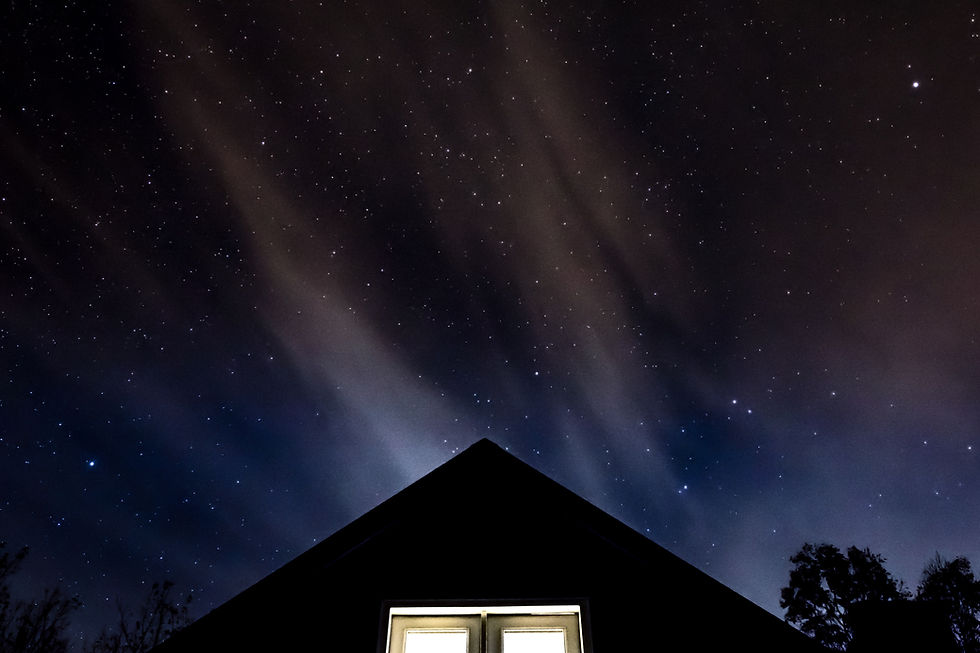Night
- Paul Anthony Jones

- Aug 21, 2021
- 3 min read
(n.) the period of darkness that follows day

Considering that we’re more focused on the obscure here at HH, explaining what must surely be one of the most basic words in our vocabulary perhaps isn’t the most exciting seam of etymological gold we could choose to mine. But fear not—there’s something a little more interesting going on in the word night.
You may have heard (or indeed, seen a meme about) the fact that in many European languages putting an N in front of the word for the number eight will give you the word for night—or, at least, something very similar to it.
In English, this change is a little imperfect given that the vowel sounds in eight and night don’t match. But in other languages (like German and Dutch, acht vs. nacht) the pairing is much more obvious. Same goes for Spanish, Portuguese and Italian, and even with a little imagination Norwegian and Swedish, and many of the other Nordic languages.

The similarity between these word pairs has led to a handful of intriguing suggestions that the words must surely be related. Perhaps our etymological ancestors considered night to be one-third of a 24 day, and so used some inflected form of the number eight to refer to a period of darkness? Other theories variously claim this is something to do with tides, moon phases, or even that there must be some kind of numerological connection. Alas, this is all garbage.
Linguists, skip ahead a paragraph or two. Everyone else, this is the crux: most of the languages of Europe (and western and central Asia, for that matter), are descended from an ancient protolanguage called Proto-Indo-European that emerged among a horse-domesticating, sky-worshiping people on the Black Sea steppes sometime towards the end of the Bronze Age. As these ancient Indo-Europeans began to migrate across Europe and Asia they took their language with them—and it is from there that much of the the grand patchwork of languages now spoken from Portugal to the Ganges are descended. And it was in their ancient protolanguage that the words for night (nókʷts) and eight (oḱtṓw) happened to be quite similar.
Was there a reason for this similarity? It’s highly unlikely. In fact, go back far enough and they weren’t actually all that similar at all. In the letters on this page they look vaguely alike, but all the symbols and superscripts floating around those letters point these roots in dissimilar directions. Nevertheless, there was just enough similarity for these words to undergo similar processes of linguistic change and evolution in some of the languages that descended from Proto-Indo-European, leaving us with somewhat similar words—eight and night—to this day.
Intriguingly, this change isn’t replicated in all the Indo-European languages. This similarity breaks down in the Slavic family of languages, for instance, leaving us with unmatching pairs like osm and noc in Czech. This distinction seems to follow a split in the Indo-European languages known as the centum–satem division: essentially, in some languages the word for 100 resembles or comes from a root akin to centum (with a hard “k” sound), and in others it more closely follows the satem template.
The western branches of the Proto-Indo-European family tree (i.e. that Hellenic, Celtic, Italic and Germanic branches) tended to follow the centum root, like Greek, Irish, Latin and French. While the eastern branches (including the Indo-Iranian and Balto-Slavic subfamilies) tended to follow the satem root, giving us S-initial words for 100 in languages like Polish, Czech, Sanskrit and Persian. It’s only in the western branch that these coincidental eight vs. night pairings tend to occur, in another example of the entwining and converging histories of our languages.





Comments